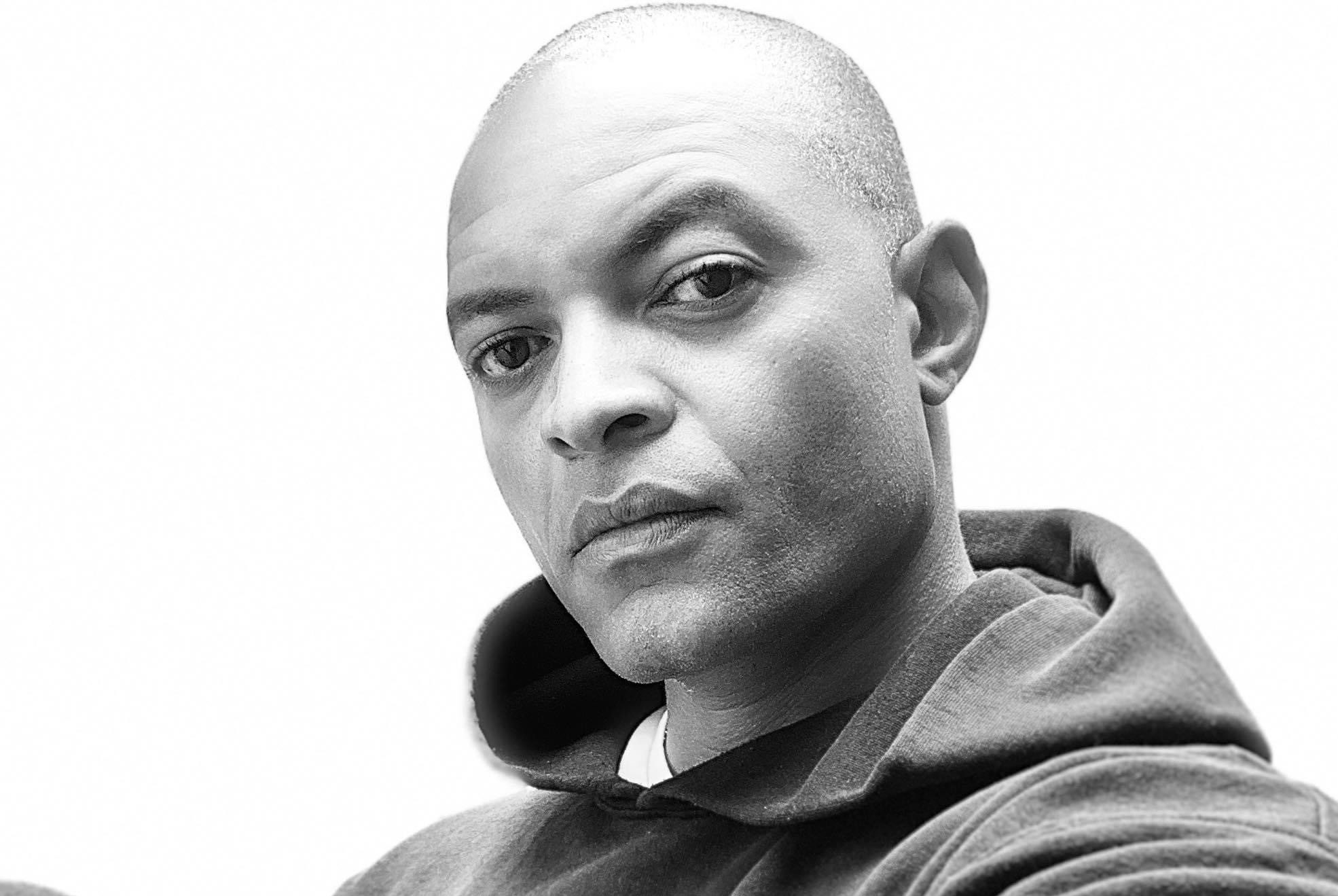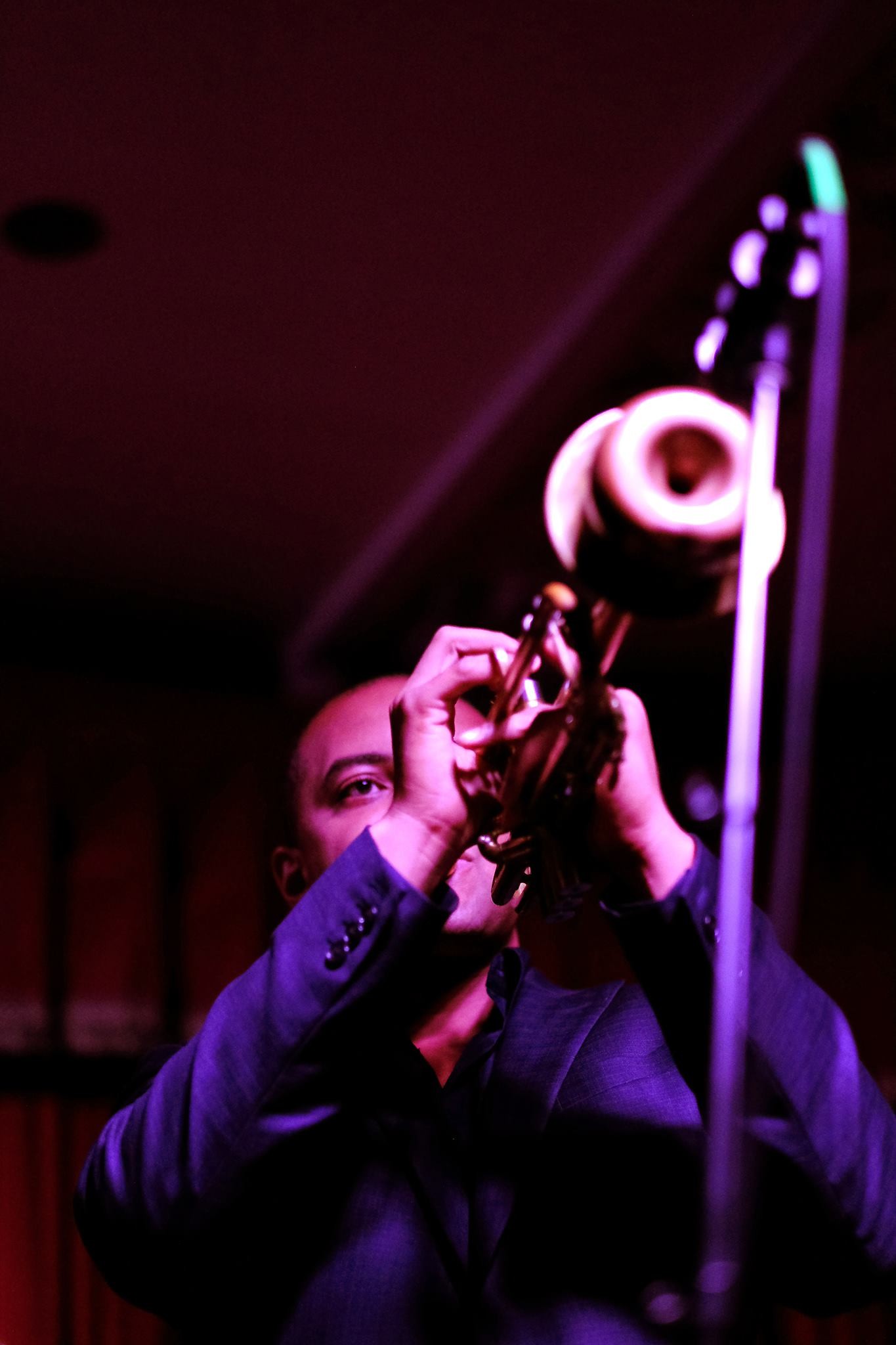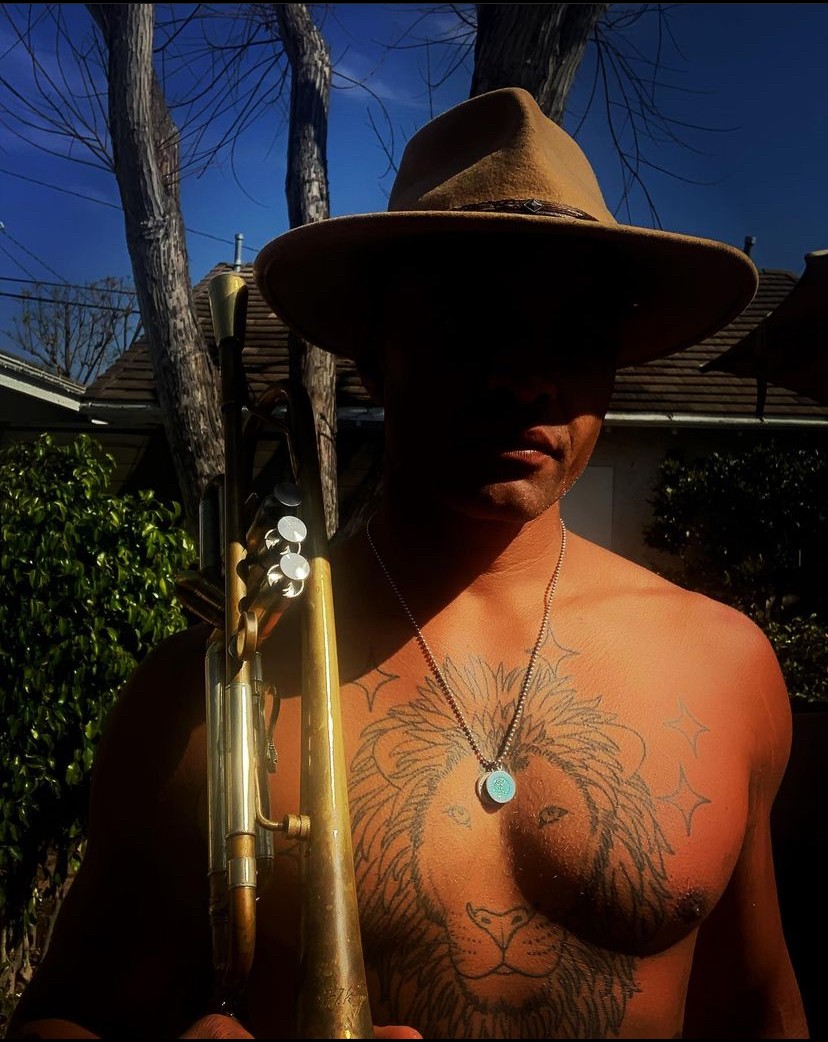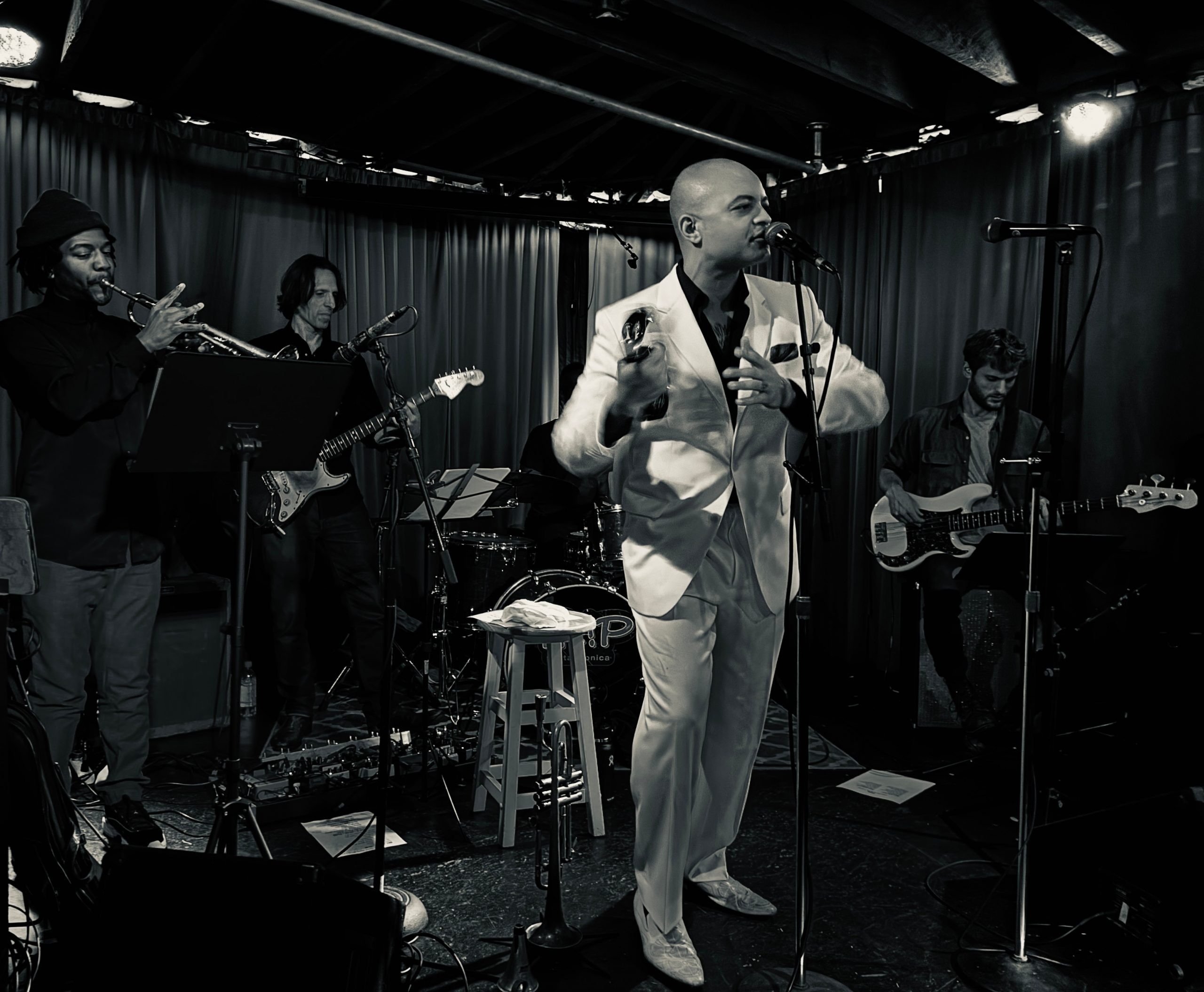
Today we’d like to introduce you to David Young.
Hi David, can you briefly walk us through your story – how you started and how you got to where you are today. You can include as little or as much detail as you’d like.
I’m a musician – specifically a trumpeter, bandleader, songwriter and composer. You might have heard my playing in movies (Puss & Boots 2, My Little Pony) television commercials, on albums (Come Home The Kids Miss You by Jack Harlow, the song Do Better by Ab-Soul, or his Tiny Desk concert, the upcoming Jhene Aiko album, or Everything That’s Missing by Big Sean). I’ve released a bunch of solo albums and perform locally around LA (check me out at Bandsintown for my upcoming shows of original music this spring!). I’m currently scoring a documentary by my friend Isaac Feder about George Martarano, who received the longest sentence in U.S. history – life without parole – for a first time nonviolent offender.
I’m from Evanston, IL which borders Chicago’s north side along Lake Michigan. Its an idyllic and worldly community that supports the arts, and is a springboard to a lot of folks who’ve gone on to do some important work in their respective fields like Lena Waithe, Samantha Irby, the Cusack family, Marlon Brando, Bill Murray, Seth Meyers, Jeremy Piven, Jerry Springer…the list goes on and on. Being the home of Northwestern University (my alma mater) and its proximity to Chicago, Evanston is seated at an important cross section of world cultures, the arts, activism and thought leadership.
I come from a creative and entrepreneurial family full of artists, educators, singers, scholars and soulful, self-made folk with roots in St. Louis, so you know we can cook, dance and play the dozens. I look back fondly on summer reunions with family punctuated with raucous laughter, all night games of spades, the sweet smell of smoking ribs, tackle football in the yard and gathering around the Lowery organ with the cousins singing spirituals in four part harmony. My environment growing up taught me to be okay with living in my skin as my true authentic self. No matter how much or little we had, there was no reason to dim my light or cower to anyone. Faith, family, fun and creativity kept me rooted and gave me a foundation of confidence and support to weather life’s challenges.
I knew early on that I wanted to play, write and perform music. I used to create a kaleidoscopic perspective of the world around me through the lens of music and sound. I transcribed birdsongs and learned to imitate them with my trumpet. I read history and scoured libraries for historical recordings to glean the zeitgeist of the time period. I was enamored of the Harlem Renaissance and jazz music. When my older sister studied music in college, I would confiscate her music theory textbooks and teach myself how to conduct and read orchestral scores, practicing on Tchikovsly’s Swan Lake and Stravinsky’s Rite of Spring in front of the mirror.
My journey through music has been a long and winding one fueled by a thirst for knowledge, dedication to mastery and a deep abiding love of what I do. I formed my first band in seventh grade and negotiated for us to play a gig at a local Mexican restaurant. That was the beginning of me being a bandleader – I realized that at every level of music and in the broader world of entertainment and the arts, somebody had to go out and sell something for us to get on stage and get paid. So I printed up some business cards and kept on writing music, booking gigs and developing a following. In college I released my debut jazz album, Appassionata. It did really well on national jazz radio, charted on Billboard and there was a lot of buzz about what I was doing.
While that was flattering and great, after college I took a strategic pivot in my career that many friends and fans didn’t understand. As a matter of fact, everyone thought I had disappeared, or simply dropped off the face of the earth. The truth of the matter was that I wanted to master more than just my horn. I was committed to learning the exact science of how to make great music into hit music. So fresh out of college I took an internship with the biggest independent radio promoter in the country. I went ‘undercover’ and didn’t tell my colleagues that I was a jazzman.
This job was the deus ex machina where I began to develop a 360 perspective of the business of music. I sat with Russell Simmons and chatted all the way through a concert. I’d call Lyor Cohen and Clive Davis on their direct lines to patch them through to my boss. I chopped it up with Alicia Keys and her mom before her first Chicago promo show at George Daniel’s music room. I sat five feet from Adam Levine and Maroon5 when they played an acoustic set in our conference room during their first radio promo tour. I forged relationships with all of the regional label reps, mixshow DJs and artist managers. Once, an artist manager threaten to drive up from Mobile Alabama and shoot up our office after having dropped off a paper sack with $5k cash – disappointed that his artist’s song didn’t crossover from mixshow to R&B. This was a whole different world from the jazz clubs and concert halls where I’d etched out a name for myself. However it was just another piece of the hitmaking puzzle that I was determined to solve.
I’m taking you all the way back now – fuck it! I’ve got so much to say. Around this time, the music business was upended by a paradigm shift in its distribution model. Napster and Limewire were whetting consumers’ appetite for free music on demand, Apple rolled out its iPod and NY attorney general Eliot Spitzer was on a crusade to crackdown on indie promoters’ influence over radio station playlists. As I watched Big Tech poised to envelop the music business, I made a strategic decision to shift my kaleidoscope and get a better view of what the changing model of distribution would eventually become.
I moved to NYC to accept a position as East Coast A&R Rep with a pioneering music distribution tech company called eMusic that had been acquired by The Orchard. There I scouted, signed and recorded experimental, psychedelic rock and punk bands to digital distribution deals. My team used a proprietary algorithm to aggregate data from ticket sales, album sales and MySpace engagement to prospect which bands were building a buzz. I’d engineer and record their live concerts, code the metadata in realtime and upload their sets via an enormous mobile server to our developers and within 24 hours, the concert would be available to the world to download and purchase on the web. The concept was revolutionary and ahead of its time. You can still find all of the acts I signed and recorded for eMusic/The Orchard on YouTube by searching ‘live at Sin-e’ (not the Jeff Buckley concert though- that wasn’t me, lol).
As a sidebar for those revisionists still lamenting the ‘death of album sales’, I’d guess that they’ve never paid a visit to a large distributor like The Orchard or CD Baby circa 2004. The staggering inefficiency of 3 floors in a Manhattan office building dedicated to CD’s collecting dust was simply untenable in contrast to the immediacy of digital downloads. I believe the digital music revolution was just as much about commercial real estate as it was about distro.
There in New York I was out on the scene playing and recording in addition to my A&R work. I was the arranger and session leader for an epic recording with Lauryn Hill that was unfortunately unreleased by Sony due to a contract dispute. My time there was cut short when our division was closed down and I repatriated back to the Windy City because a family member had fallen very ill. That was a challenging time for me. I learned an important lesson that while you’re on your way getting to where you’re going, there’s a thing called life that can get in the way of where you’re headed. So I learned to be like the reed that bends but doesn’t break and do what any jazzman does – improvise.
Back in Chicago I picked up where I left off – performing, teaching and seeking to deepen my knowledge and experience in the business of music. I toured internationally with Nicole Mitchell’s Black Earth Ensemble and recorded a dozen or so albums as a sideman or ensemble player with diverse groups of musicians – jazz, bluegrass, symphonic, hip-hop, gospel, pop and everything in between.
I led a very popular wedding and event band there for eight years. My band was on fire – we played Vegas for NYE a handful of times. During one of those shows my tuxedo pants split wide open moments before I had to play a big feature on ‘Human Nature’ alone on a circular stage in front of a few thousand people. I’ll leave that story as a cliffhanger…that’s showbusiness!
Leading a dance band is a great way to understand what separates a timely song from a timeless hit. As a songwriter, I deepened my knowledge of what makes a great song. As a performer, I got to unleash the full power of my stage energy, singing, dancing, doing the splits and leaving it all on the stage. As an emcee, I sharpened my ability to control the room and speak to a huge room of people – while making them feel like I’m talking to each person individually. There’s a lot of gold that came out of those years.
Simultaneously during the days I worked as an account executive in radio advertising sales at iHeart Media’s Chicago cluster – WGCI, WVAZ, WLIT and KISS FM. This was difficult and rewarding work that required tenacity and a whole lot of energy. As one would imagine I wasn’t sleeping much these days but I relished the opportunity to bring together my passions for music, sales, entertainment, and business.
At some point I was ready for a change and wanted to return to making music and working full time for myself. I relocated my family to Austin, TX in order to start my own event entertainment agency and fully immerse myself in the music scene there as a songwriter, performer and bandleader. I was there for five fantastic years playing four nights a week between club residencies, pickup dates, recording sessions and special events. There are so many tremendous musicians there that I worked with. My wedding bands were very busy and every weekend, we loaded up in a sprinter van performing in any and every part of the state.
Fast forward to right now, I’ve been in LA for just shy of 5 years. I arrived just before the pandemic began so in many ways, I feel like I’m just getting started here and looking forward to what the future brings. Again, I’ll plug my upcoming shows this spring! Look for me at Trip Santa Monica and the Mint this March and April.
Has it been a smooth road? If not, what were some of the struggles along the way?
I consider myself lucky because early on, I found a thing I loved to do and never really looked back. I get to create music and experiences for myself and others while getting paid. I also get to teach my craft and share knowledge while getting paid. That’s amazing and not everyone can say that. However, I didn’t begin in music because I was after a payday. I’m grateful to have seen some monetary gains in my career but there’s a pressure that one puts on their craft or creative work when it is their vocation. That creates an inherent tension – the space where most artists spend or have spent a great deal of their time. This idea is explained well in the book The War of Art by Steven Pressfield.
Take for instance, the DSP’s. So much convenience, access, etc. However – they have set an expectation that music/movies should be on demand and damned near free all of the time. As we know the artists aren’t winning here necessarily. There are pockets of opportunity sure – I’m well acquainted with all sides of this argument, but either way you slice up that humble pie, creators are being pushed further to the bottom of the economic food chain – while being encouraged to produce more than ever before. It drives the quality down and the profit. There is a clear winner, however – the big shoulder shareholders that roll over rights holders!
This is getting into existential territory – but I bring this up because it’s symbolic of a wider trend. There is noticeably less value placed upon or credit given to someone such as myself who has dedicated his life to the absolute mastery of a craft within the new creator economy. As an example, a producer whom I admire and work with was working on an album with a major artist and called me to lend my trumpet stylings to the record. However, it wasn’t to actually come to the studio with the artist and producer team, like I had offered. The producer requested that I “record and send over 10 – 15 of the best melodies in the world and make them sound expensive. Instead of having you in the studio, I want to have all of your playing in my sampler so it’s like I can take you with me to any session I go to.” It was a watershed realization for me – there’s so much to unpack I could teach a class about the significance of this conversation.
I got the call to do this because, 1) I spent years of intense study and to become a master at my craft; 2) I have so much experience in as a player that my musical taste and choices are held in high regard by others; 3) I have put in the work to learn how to record engineer, mix and sound design, allowing me to record myself remotely; 4) I have invested in recording equipment; 5) I have mastered composing and arranging. So what do I do? I send off the recordings, haha! But in so doing, I lose the complete control over that intellectual property. I have no clue where those horns end up – on what record / commercial or anything. I do know that a few snippets landed on a high profile album – that’s great. I had to climb uphill to see a payday for it, looping in the Musician’ Union, the record label. Nothing personal, but I have a family to feed and I can’t give away my skill and expertise for a pittance – even thought that is what the current industry climate expects of me…and others like myself.
It’s a cautionary tale. Beware of giving away your work for free. Most creatives think “no that won’t happen to me” but the push to do just that is subtle, subversive and built into the current culture. All those TikTok shorts you made? It’s for free. The IG reel you spent 1 hour doctoring up? That was free. Dropped a new track on Spotify? FREE NINETY NINE! Just do the math. If you complain, you’re a victim; if you go along with it, you’re a sucker; if you take a stand, you’re an asshole. At the end of the day, whatcha gonna do? Hahahah!!
So in a word, no – not always. The road hasn’t always been easy but I’ve learned so much up until now and am looking forward to more lessons! After all, the battlefield is often within.
Appreciate you sharing that. What else should we know about what you do?
Albums, live performances, music producing, songwriting, private events, and film scoring.
Where do you see your industry going over the next 5-10 years? Any big shifts, changes, trends, etc? (industry outlook)
Creative artists will continue to find ways to adapt to the changing landscape of content delivery, IP rights and technology. New intelligent tools and capabilities for digital creation and means of distribution will continue to proliferate and become available to a wider audience.
Contact Info:
- Website: www.davidyoung.wtf
- Instagram: https://www.instagram.com/davidyoungofficial/
- Facebook: https://www.facebook.com/david.c.young.16
- Linkedin: linkedin.com/in/david-young-music
- Twitter: https://twitter.com/DYoungPresents
- Youtube: https://www.youtube.com/c/DavidYoungPresents
- SoundCloud: https://soundcloud.com/davidyoungofficial




Image Credits
David Young
KUTX
Hohenthal











